International News

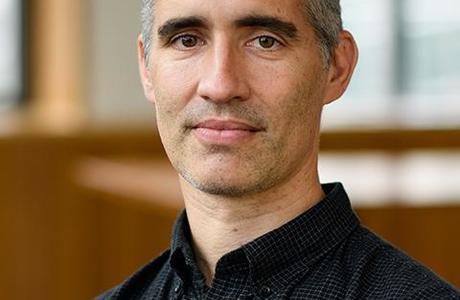
In a year when the value of global engagement has been questioned, the University’s international community of faculty, researchers and students at the Princeton Institute for International and Regional Studies (PIIRS), the Office of International...
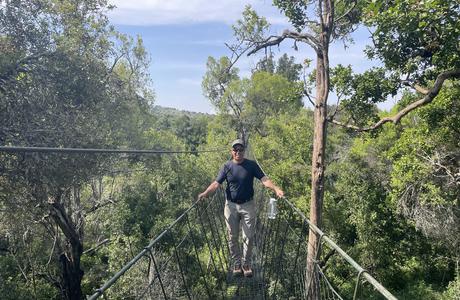
Brian Kloeppel, hired in June as the inaugural director of the Mpala Secretariat, knows field research centers. As a professor of natural resource conservation and management at Western Carolina University, a role he held for 17 years, his time spent...
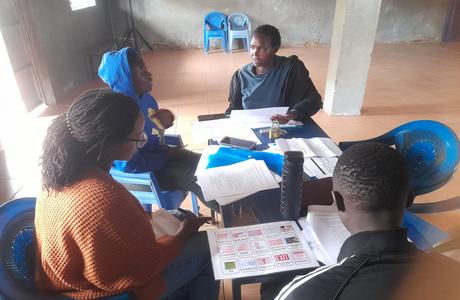
The Princeton Institute for International and Regional Studies (PIIRS) supports bold, collaborative projects that connect faculty research with the wider world. Through competitive grants of up to $75,000 over three years, PIIRS advances innovative...
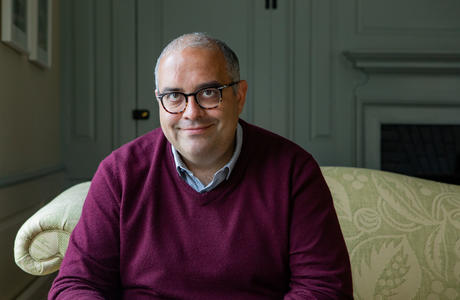
Shamus Khan, the Willard Thorp Professor of Sociology and American Studies, studies America’s elite class through the lens of their schools and institutions. He, along with Humboldt University sociologist Daniel Bultmann, is now working on a PIIRS...
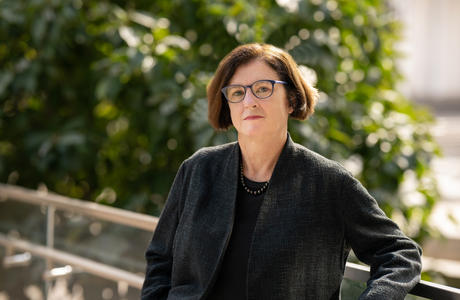
Fellowship Advising, a division within the Office of International Programs, assists undergraduates and recent alumni as they navigate the complex landscape of identifying and applying for fellowships, scholarships and grants, many of which support...
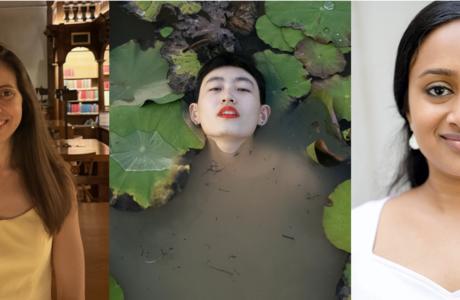
Around campus, they are affectionately known as "frequent flyers:" students who take a determined approach to finding creative ways to see as much of the world as they can through Princeton's offerings. Experiencing other cultures and perspectives...
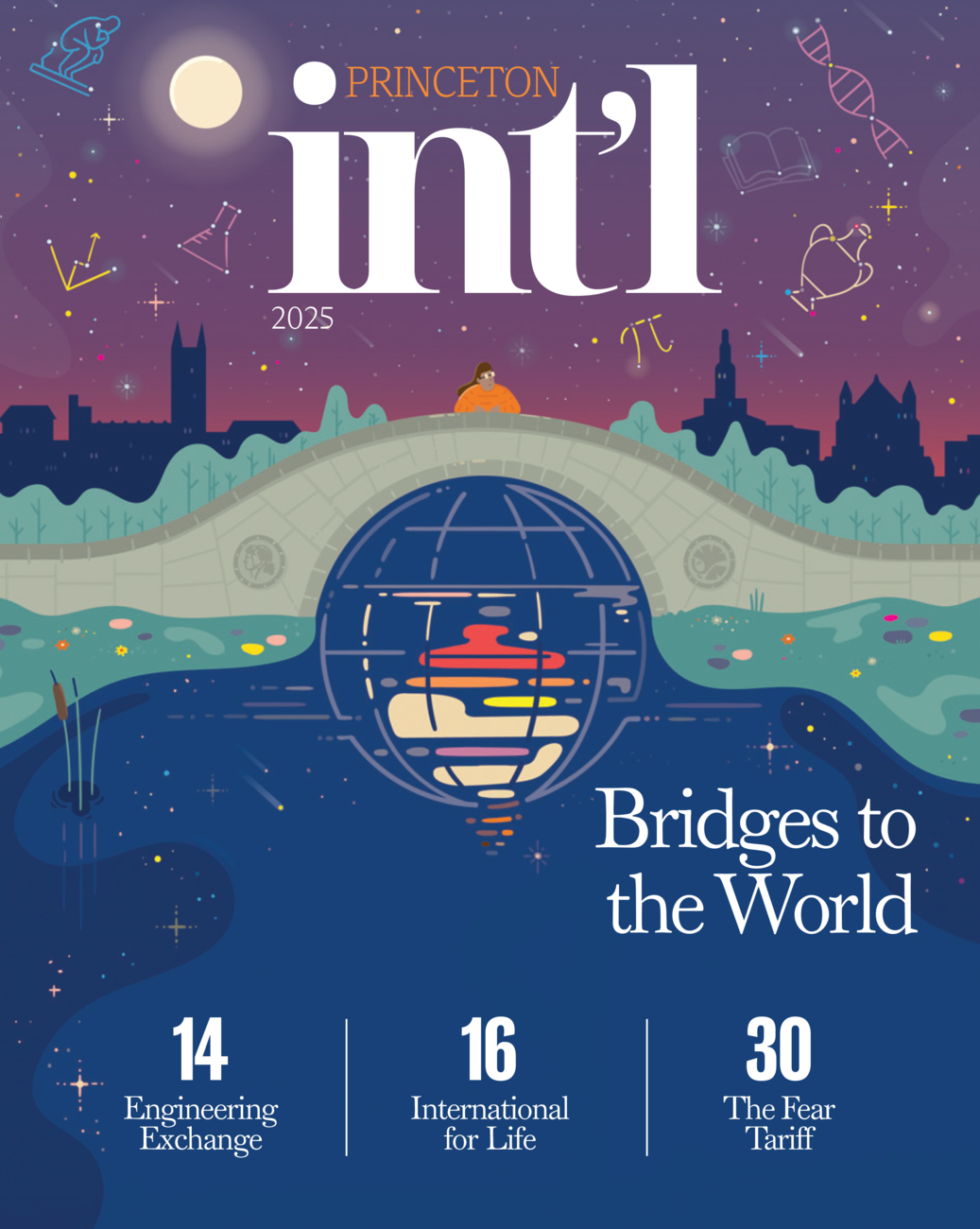
Princeton Int'l magazine
All News
Results 1 - 10 of 81
This SPIA Alum is a ‘Bright Spot’ on the International Storytelling Stage
As an undergraduate student studying ecology and evolutionary biology at Princeton University, Bing Lin ’16, Ph.D. ’21 traveled to Honduras for field work that saw him work on two coral reef patches that, despite their proximity, featured completely different fish and coral compositions.
Field Work, Real Work: PIIRS’ Wide-Ranging and Evolving Research Initiatives Respond to the World’s Most Urgent Questions
The Princeton Institute for International and Regional Studies (PIIRS) supports bold, collaborative projects that connect faculty research with the wider world. Through competitive grants of up to $75,000 over three years, PIIRS advances innovative work across disciplines and regions — opening...
Indigenous Scholars Unlock Princeton’s Remarkable Maya Manuscript Collection and its Crucial Research Potential
Princeton-Humboldt Project to Explore a Global Libertarian Movement
Shamus Khan, the Willard Thorp Professor of Sociology and American Studies, studies America’s elite class through the lens of their schools and institutions. He, along with Humboldt University sociologist Daniel Bultmann, is now working on a PIIRS-funded project called “Global Sociology of...
Princeton Students at Forefront of Global Health
This summer, the Center for Health and Wellbeing (CHW) sponsored 92 opportunities for Princeton University students to tackle critical global health challenges — from mitigating antimicrobial resistance, to developing therapies for neurogenerative diseases and cancer, to preparing for the next...
From Tokyo to Taipei: Shaping Policy in a Shifting Asia
Since 2022, graduate students from Princeton University and the University of Tokyo have met annually at the latter institution to present and discuss their research. The fourth annual workshop, examining the role of alliances in the turbulent world of U.S.-China competition, took place in early...
Amazonian Leapfrogging 3.0 promotes bold environmental solutions
A cross-disciplinary collective seeks nature-based solutions for protecting the world’s most important biome.
Research Record: When Do ‘Side Payments’ Between Countries Generate Positive Results?
Princeton SPIA’s Research Record series highlights the vast scholarly achievements of our faculty members, whose expertise extends beyond the classroom and into everyday life. If you’d like your work considered for future editions of Research Record, click here (external link) and select...
Princeton SPIA Faculty Offer Reactions to Trump Immigration Policies
With President Trump signing 10 administrative orders on immigration in his first week in office and pledging mass deportations and significant changes to border security, faculty at the Princeton School of Public and International Affairs are providing expert insights into the situation.
New Study Finds that Some Climate-Mitigation Strategies are Better for Wildlife than Others
As we confront the growing climate crisis, society must weigh potential pathways to net-zero emissions. But in the race to decarbonize—including through planting forests and biofuels—a new study finds that well-intended efforts could have unintended impacts on biodiversity, and argues for...
